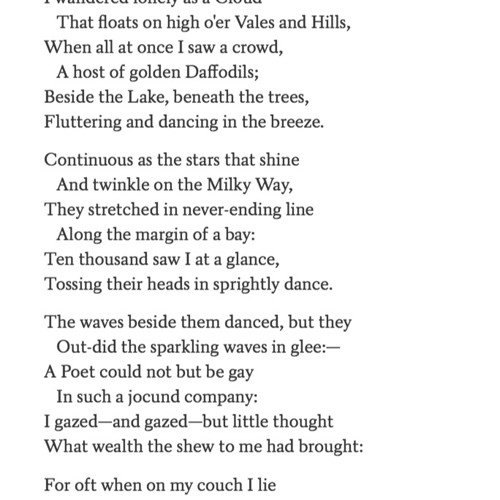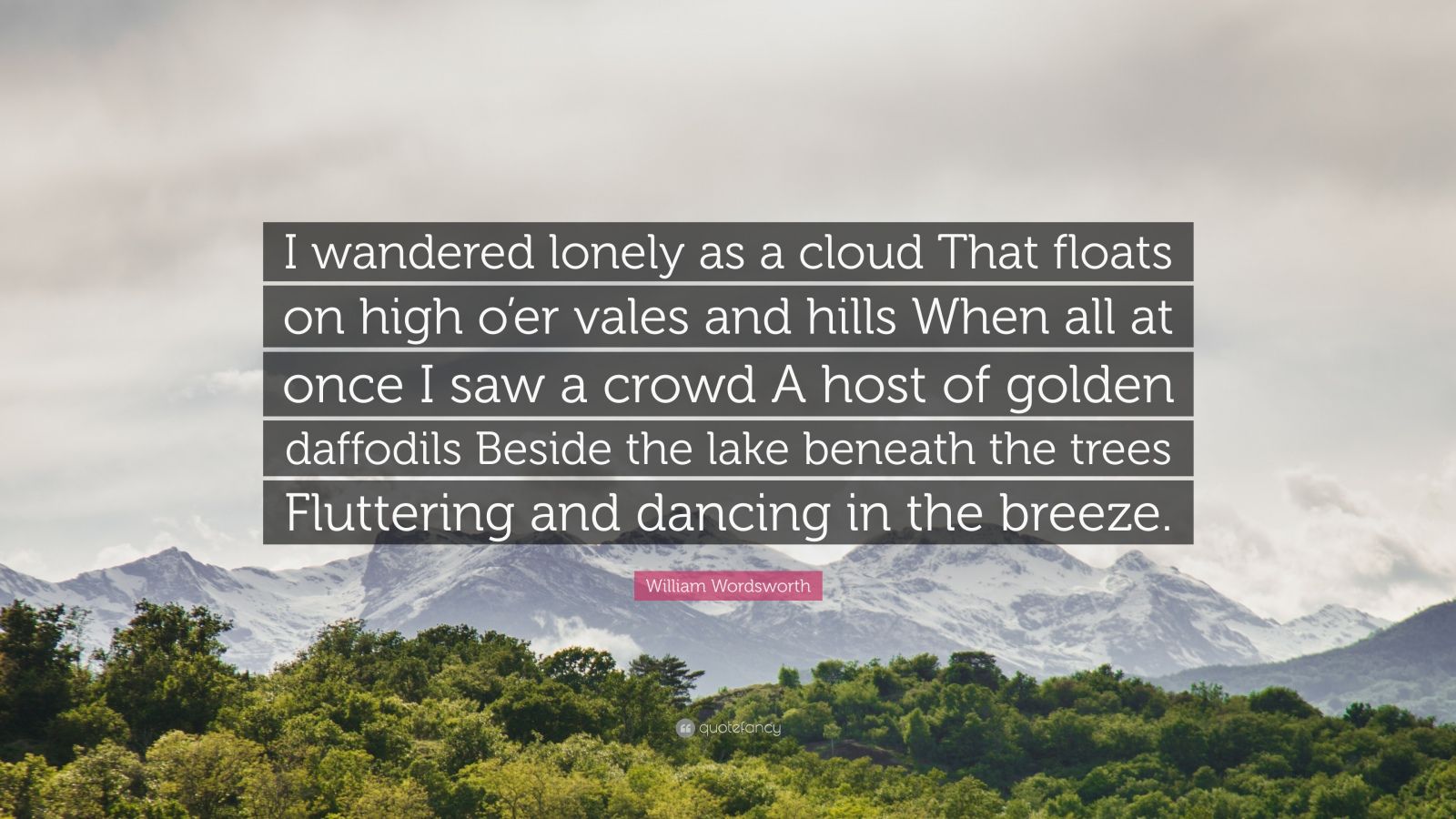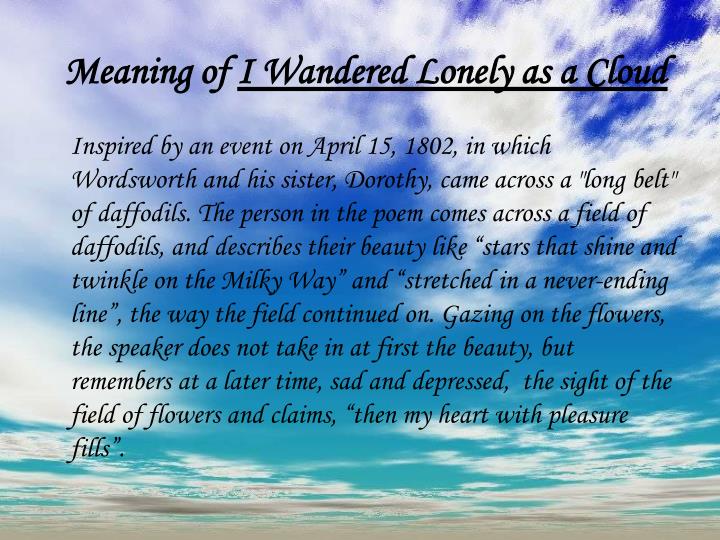

That pleasure might derive from the description of painful things, but the description itself gives pleasure, and the contemplation and composition of the description gives the poet pleasure as well. In the preface to Lyrical Ballads, he says that the poet’s purpose and vocation are the same thing: to give pleasure. The word pleasure in the second-to-last line is not one that Wordsworth uses lightly. The fact that memories can surprise us with pleasure like this is what Wordsworth is noticing and celebrating. “I wandered lonely as a cloud” is often and rightly taken as an exemplification of Wordsworth’s famous doctrine, expressed in his preface to Lyrical Ballads(1798), of poetry as “emotion recollected in tranquility.” Here the emotion would be the poet’s unexpected gaiety at seeing the daffodils, and the tranquility would be vacant or pensive moods when he suddenly remembers them. The poem records this event rather than the actual wandering that made this second event possible. But the third temporal perspective is that of the poem itself, which tells how he remembers the daffodils involuntarily when he is not composing but lying on his couch.


It is because the memory fills his heart with pleasure that it can dance with the daffodils, and one of the things of which this dance is a metaphor is the poem that celebrates them. The daffodils have brought something like the ebullience of the present into the courts of memory, so that the “loneliness” of the first stanza can become the blissful solitude of the last. Later he did, those frequent times when the memory flashed upon his inward eye while he was lying on his couch either thinking much (pensive) or thinking little (vacant). Once he wandered and saw the daffodils but did not realize their importance. This is the second temporal perspective in the poem. The wealth the daffodils bring him is the wealth of thought and of memory. He is “Surprised by Joy,” and as in that poem, he may not quite wish to be. We discover in line 15-“a poet could not but be gay”-that the pleasure the sight of the daffodils affords him is not only unexpected, it may be something that he resists. This is not neediness but, rather, a sense of poetic selfhood as isolated and unlikely to find anything in the world that will comfort it or cheer its solitude. It is important to notice the loneliness of the wanderer in the opening line. They put him in mind of the heavens at night-the stars in the milky way-as well as the waves of the lake by which they dance, and so they become a kind of center to the whole world of human experience: stars, sky (where the clouds and the breeze are active), earth, woods, and waters. The speaker has been astonished by the sudden appearance, or at least his sudden awareness, of a host of daffodils. The poem begins in the past tense and seems to be the present report of an incident just experienced. (Her hidden or unexpected presence should be compared with her surprising appearance at the end of “Tintern Abbey.”) The most obvious change, of course, is the speaker’s loneliness, where in reality Wordsworth was with his sister. In her journal for April 15, 1804, she wrote: “I never saw daffodils so beautiful they grew among the mossy stones about and about them, some rested their heads upon these stones as on a pillow for weariness and the rest tossed and reeled and danced and seemed as if they verily laughed with the wind that blew upon them over the lake, they looked so gay ever dancing ever changing.” Wordsworth waited two years to write the poem about that day, and in “I wandered lonely as a cloud,” he reimagines it according to his poetic needs. We know from his sister Dorothy’s journals that they were together when they saw the daffodils the poem celebrates. The extent to which Wordsworth altered versions of events that were the origins of his poems should be noted here. Wordsworth was particularly good at interweaving several different temporal perspectives into a single poem, and since time and the changes it produces formed Wordsworth’s central poetic preoccupation, his interweaving in this poem is of central importance. Like many of Wordsworth’s shorter poems, it is far more complex than it seems at first. I Wandered Lonely as a Cloud is one of William Wordsworth’s most famous poems.

Analysis of Wordsworth’s I Wandered Lonely as a Cloudīy NASRULLAH MAMBROL on Febru


 0 kommentar(er)
0 kommentar(er)
